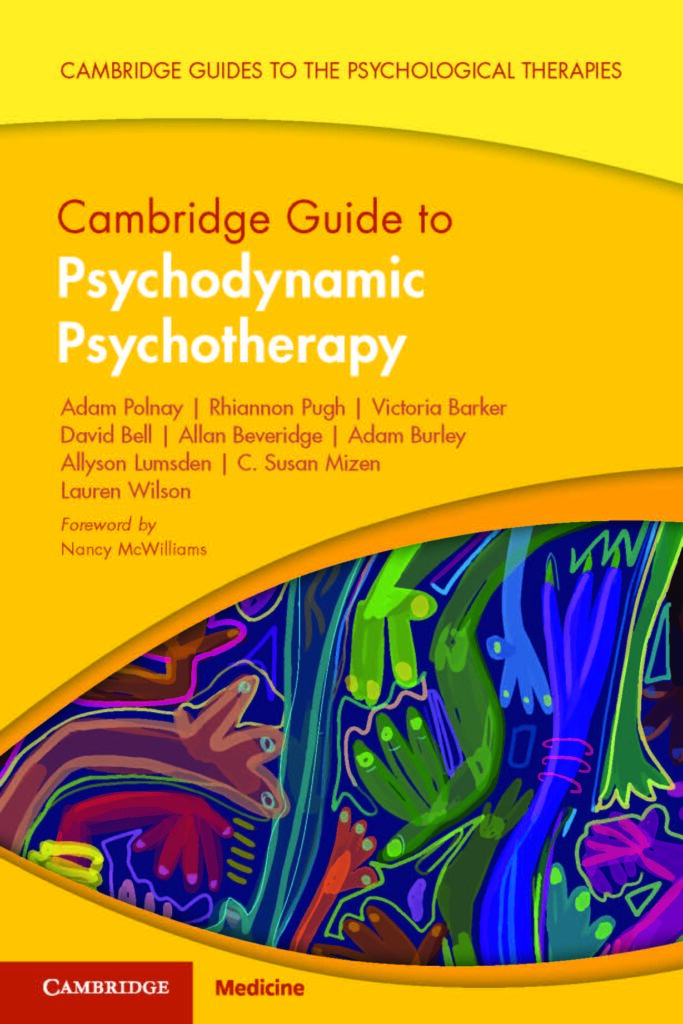
As clinicians involved in training and supervision, we have observed in others and ourselves how starting psychotherapy with a patient is often anxiety-provoking for both parties. This experience may leave new therapists in particular feeling de-skilled. Learning a new style of working can add to a feeling of being at sea. It is perfectly understandable to feel anxious going into any therapeutic situation, no matter how experienced a therapist one is. For those clinicians starting out on their journey as therapists, it may be reassuring to know that although the anxiety can, and indeed should remain, the sense of being ‘deskilled’ and lost tends to lessen over time.
During our own training, both of us were on the look-out for engaging and contemporary psychotherapy resources. We enjoyed books and papers that could de-mystify the process and provide some containment. Works such as Learning from the Patient by Patrick Casement, texts by Nancy McWilliams and Glen Gabbard, or Introducing Melanie Klein: A Graphic Guide by R.D. Hinshelwood and colleagues. All these authors use direct language or illustrations to convey a humane approach to encounters between patient and therapist.
Now, as consultant psychotherapists and clinical supervisors, we feel privileged to have been offered the opportunity to co-write and edit a new psychotherapy textbook. This allowed us to engage with the object of our curiosity in a different way – that is, influenced by the writers we appreciated earlier in our psychotherapy journeys, to now try and craft a useful resource ourselves.
Our book, Cambridge Guide to Psychodynamic Psychotherapy, forms part of a new series of texts on the psychological therapies. As well as being designed to be welcoming and accessible for clinicians new to psychodynamic work, we also hope the book will be useful for experienced psychotherapists and generalists – perhaps in particular those who are seeking a fresh take on the ‘basics’ of psychotherapy (see later).
Nancy McWilliams provides the foreword, setting contemporary psychodynamic psychotherapy in perspective. Our book is a collaborative effort with clinicians from diverse settings, including out-patient psychotherapy, in-patient psychiatry, secure hospitals, and the homelessness sector. The book covers core psychodynamic history, theory, and practice, and explores a range of clinical presentations, including anxiety, depression, and the dynamics of borderline states. There are contributions from David Bell on the supervisory process and Susan Mizen on narcissistic difficulties.
The final section of the book goes beyond one-to-one therapy to address relational approaches to care within teams and services. This includes chapters on the dynamics of anger and aggression, reflective practice, homelessness, and psychologically informed environments.
All the books in the series have the same basic format and describe various therapeutic approaches including cognitive-behavioural therapy, mentalization-based treatment, schema therapy and interpersonal therapy. To us, the style of the series communicates an inclusiveness and a recognition of the important contributions of different therapeutic approaches – psychodynamic psychotherapy included. This drew us to be part of this wider project.
During the writing of this book, we realised that, although we came to the project with a degree of knowledge, some concepts were fuzzy and uncertain to us. It was a valuable learning experience for us to study these areas, and through this process, clarify our own understanding, or in many cases, encounter new ideas.
Additionally, we were struck by the joy and value in re-visiting the so-called ‘basic’ concepts and practices of therapy. A realisation of, ah, this is why we wanted to become psychotherapists in the first place. From discussion with colleagues, we think we are not alone in observing how we as therapists may, over time, come to take the basics for granted, or even ‘forget’ them. A familiarity can creep in that diminishes the fresh shock of clinical encounters present when working with one’s first psychotherapy patients. Certainly, there is the tendency for any activity we practice repeatedly to become automatic.
But perhaps there is also a dynamic aspect to this drift away from the basics. It is well recognised that interpersonal pressures may accumulate from working closely with patients over a long period of time. As clinicians, we may identify with (projected) experiences such as disinterest or a lack of curiosity that characterise the inner worlds of some of our patients. Our previous blog- “The tone that makes the music: Psychodynamics of Listening with Intent“, discusses in more detail how emotions and experiences can be powerfully communicated from one person to another.
We think all these dimensions may contribute to the basic premises of therapy fading imperceptibly from time to time in the therapist’s mind, and hence the need for continuing re-discovery of these essentials.
To conclude, the process of writing a book has, in a good way, led us to feel less experienced, more ‘on the edges of knowing and not-knowing’ (French and Simpson 2000, drawing on Bion 1980). Bion argues that this is a helpful disposition for the therapist, although it is not necessarily easy. As French and Simpson put it:
“Just at the moment when working at the edges between knowing and not-knowing can allow space for a new thought, it can also let in the anxiety of one’s nakedness.”
Maybe the feeling of being at sea has something going for it.

Title: Cambridge Guide to Psychodynamic Psychotherapy
Authors: Adam Polnay, Rhiannon Pugh, Victoria Barker, David Bell, Allan Beveridge, Adam Burley, Allyson Lumsden, C. Susan Mizen and Dr. Lauren Wilson
ISBN: 9781009108508
Latest Comments
Have your say!